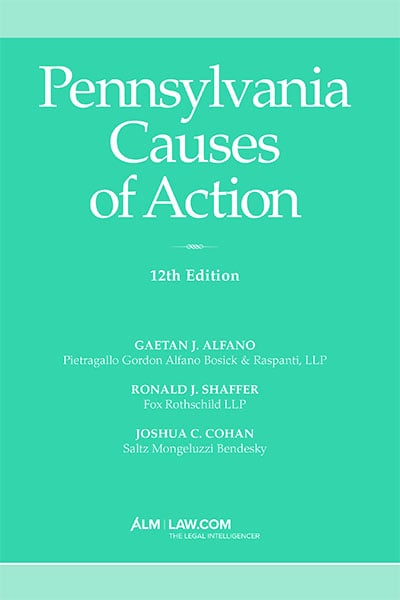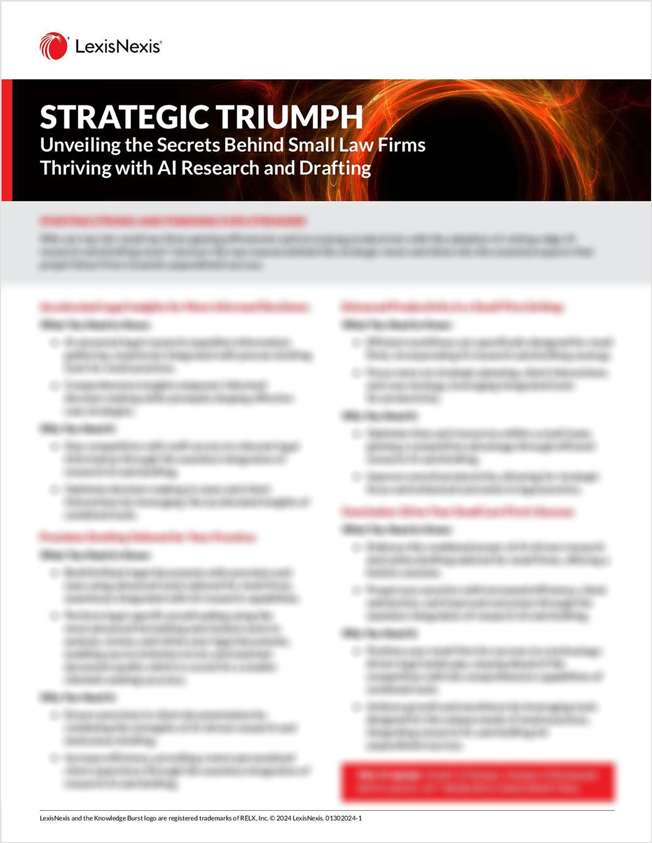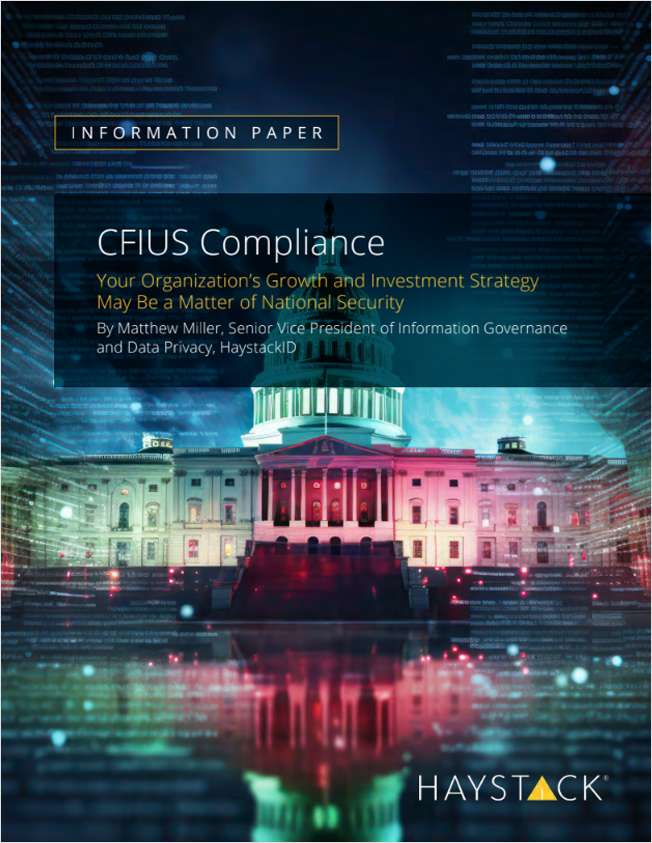0 results for 'undefined'

2d Circuit backs work product tape subpoena
A subject of a grand jury investigation who, on advice of counsel, taped phone calls with a fellow broker to help protect himself cannot shield the recordings from prosecutors following a 2nd Circuit ruling. In a decision unsealed this week, the circuit held that, even though the tapes were "fact work product," the government had shown that there was a "substantial need for the recordings and that the information could not be obtained through other means."
Court of Chancery Issues New Rule to Govern Confidential Filings
On Monday, the Delaware Court of Chancery issued a new rule governing confidential filings with the court - Court of Chancery Rule 5.1 - to replace the longstanding Rule 5(g). Rule 5.1 will become effective January 1, 2013. This overhaul of Rule 5(g) reflects the court's historical concern with balancing the public's right of access to judicial proceedings with parties' interests in maintaining the confidentiality of certain information. (See the memorandum from the Delaware Court of Chancery, "Protecting Public Access to the Courts: Chancery Rule 5.1.") Rule 5.1 emphasizes at the outset that "proceedings in a civil action are a matter of public record," and, subject to the limitations outlined in the rule, all filings in the Court of Chancery "shall be available for public access." Notably, Rule 5.1 does not affect the practice of entering into confidentiality stipulations to govern discovery, and is unlikely to affect the designation of confidential and highly confidential material. Instead, Rule 5.1 focuses on confidential information that parties file with the court. Below is a description of the key provisions of Rule 5.1, including where the new rule deviates from the prior Rule 5(g).
Judge Affirms Affirmative Action In Michigan Admissions Policy
In a case that may be headed for the U.S. Supreme Court, a federal judge upheld the University of Michigan's use of affirmative action in its admissions policy. U.S. District Judge Patrick Duggan said the university presented "solid evidence regarding the educational benefits that flow from a racially and ethnically diverse student body." The case is being closely watched by schools across the country.
In Puerto Rico, bracing for the blow
The commonwealth is the largest recipient of U.S. support, but nearly half its residents qualify for legal assistance.With the help of its lawyers at Fish & Richardson, speaker manufacturer Bose convinced a Federal Circuit appellate panel to reverse a finding of fraud by the Trademark Trial and Appeal Board. The Federal Circuit's decision tightens the requirements for finding fraud in trademark applications.
View more book results for the query "*"



Commercial Lender CIT Files for Bankruptcy Despite Icahn Loan
CIT filed for Chapter 11 Sunday in the U.S. Bankruptcy Court in Manhattan, listing $71 billion in assets and $64.9 billion in debt. The filing ranks as one of the largest by a financial institution. A $1 billion loan from Carl Icahn will fund operations while CIT reorganizes as part of a prepackaged bankruptcy.
How Far is Too Far in Seeking Confidentiality?

Judge Rules PIP Online Processor Flouted Dispute-Resolution Patent
National Arbitration Forum, a company that processes personal injury protection claims, infringed on a patent for computerized dispute resolution, a federal judge in New Jersey has held. U.S. District Judge Mary Cooper granted summary judgment to plaintiff Cybersettle.
Trending Stories
- 1Generations Aren't Connecting, and It May Be Hurting Law Firms
- 2Kamala Harris Would Only Be the Second Lawyer-President With a Non-T-14 Law Degree
- 3Partners Confront 'Deeply Uncomfortable' Client Communications on Soaring Billing Rates
- 4After Milbank Rolls Out Summer Bonuses, Big Law in 'Waiting' Mode While Associates Watch Eagerly
- 5A Look at Law Firms' Intergenerational Communication Breakdown
Featured Firms
Law Offices of Gary Martin Hays & Associates, P.C.
(470) 294-1674
Law Offices of Mark E. Salomone
(857) 444-6468
Smith & Hassler
(713) 739-1250
More from ALM
- Morgan & Morgan Class Action Attorneys Detail Pathway to Success Within Cybersecurity and Data Privacy Practice 1 minute read
- Holwell Shuster & Goldberg Partners Leverage 'Hostile' Witnesses to Secure $101 Million Verdict Against Walmart 1 minute read
- Legal Speak at General Counsel Conference Midwest 2024: Mike Andolina, Partner, White & Case 1 minute read
Resources

Expanding Your Practice Areas: How to Expand Offerings that Attract and Retain Clients
Brought to you by Filevine
Download Now

Driving Value with Better Decision-Making: A Governance Maturity Checklist
Brought to you by Diligent Corporation
Download Now

Strategic Triumph: Unveiling the Secrets Behind Small Law Firms Thriving with AI Research and Drafting
Brought to you by LexisNexis®
Download Now

CFIUS Compliance: Your Organization's Growth and Investment Strategy May Be a Matter of National Security
Brought to you by HaystackID
Download Now



